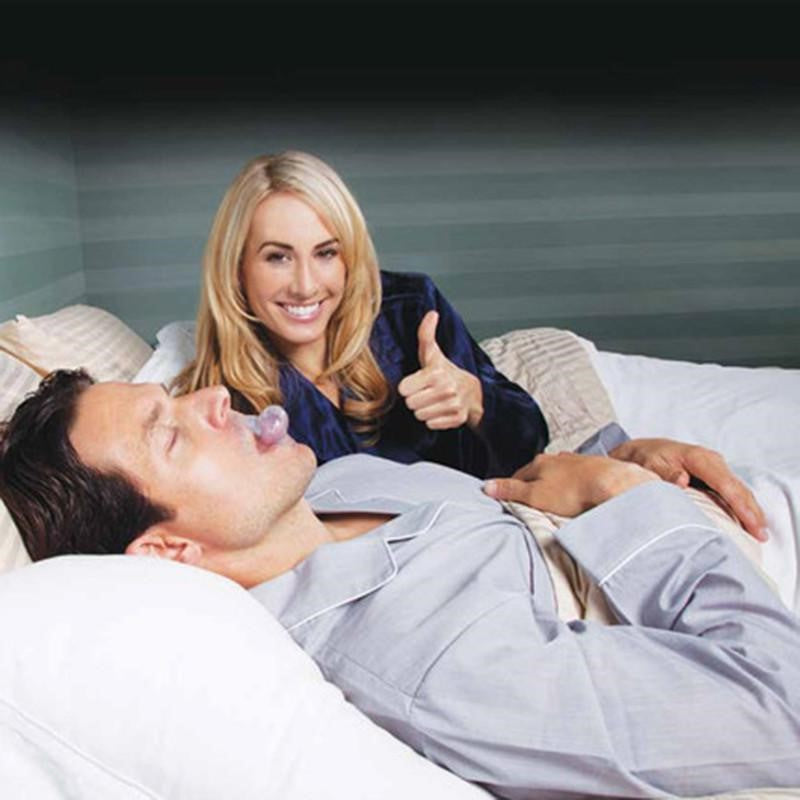-
Description
Anti Snore TSD (Tongue Stabilizing Device) is a simple, inexpensive and non-invasive solution to problem snoring and Obstructive Sleep Apnea.
It is a simple, one-size-fits-all solution that employs tongue displacement technology.
You don't have to mould or trim it, and no jaw modifications are required.
It is perfect for denture wearers because no pressure is given to your gums, jaw, or teeth. It is also a pleasant option for those who find it difficult to adjust to the jaw positioning of a MAD.
Control your tongue…Prevent the snore
The Anti Snore TSD is a brilliant simple, effective and noninvasive anti-snoring medical device. It provides an easy solution for the treatment of snoring problem.
Traditional mandibular advancement devices indirectly move the tongue forward by moving the mandible. But Anti Snore TSD gently suctions to the tip of the tongue, preventing it from falling back into the throat and obstructing the airway. In addition it prevents clenching and tooth grinding by positioning the tongue between the upper and lower teeth.
Made of soft medical-grade silicone, Anti Snore TSD is a one size fits all model. The Anti Snore TSD requires no impressions, no adjustments and has no moving parts. Best of all, it is indicated for anyone — even those with TMJ issues and the edentulous.
How to use it?
- Place the TSD in your mouth i.e., it should rest between your front teeth and the lips. The protruding bulb is outside of your mouth.
- The side with the small cut on the TSD should go to the bottom side of the mouth.
- Squeeze the bulb to let out air.
- Place your tongue in the tube and release the bulb. This creates suction vacuum and your tongue attaches to the bulb area of the TSD.
What causes snoring?
Snoring is caused by a narrowing of the upper airway during sleep. This can be due to large tonsils, a soft palate, a long uvula or excessive flabby tissue at the throat. All of these areas relax during sleep.
In other cases, nasal congestion from allergies or deformities of the cartilage between the two sides of the nose can contribute to narrowing of the airway.
By keeping the airway open, air travels more slowly, reducing throat vibrations and diminishing or eliminating problem snoring. Holding the tongue forward is one of the most effective ways of keeping the airway open during sleep.
However, the most common cause of narrowing of the upper airway is a tongue muscle that becomes too relaxed during sleep. When relaxed, it gets sucked back into the throat with each breath taken.
Because snoring occurs when air travels faster through a narrow tube than through a broad one, this rapidly moving air causes the relaxed soft tissues of the throat to vibrate. It is this vibration that creates the sound of snoring.
Common causes of snoring
- Supine body position (lying face up)
- Large tonsils, long soft palate or uvula
- A tongue that relaxes too much during sleep
- Being overweight
- Nasal congestion from colds, allergies or deformities of cartilage within the nose
- Menopause
- Consuming alcohol, medication or tobacco products within six hours of going to sleep
- Hypothyroidism
Who snores?
More than 60 percent of the adult population suffers from problem snoring. This percentage increases each year in people aged 50 and older, as tissues in the upper airway lose elasticity and tend to vibrate more during breathing, increasing the incidence of snoring when the airway is reduced during sleep, the tongue is more easily sucked into the back of the throat and obstructs the airway.
- Sixty percent of men and 40 percent of women over the age of 40 are habitual snorers.
- Snoring is common in children between the age of 2 to 7, particularly if they have a chest infection or enlarged tonsils.
- Snoring is also commonly experienced by women during the later stages of pregnancy.
Health Benefits:
If left untreated sleep apnea can result in growing number of health problems, some of them include:
- High Blood Pressure
- Heart Stroke
- Heart Failure, Irregular Heartbeats, Heart Attack
- Diabetes
- Depression
- Worsening of ADHD
FDA Disclaimer: These statements and products have not been evaluated by the FDA. They are not intended to diagnose, treat, cure, or prevent any disease or condition.
If you have a health concern or condition, consult your physician.
Always consult a medical doctor before modifying your diet, using any new product, drug, supplement, or doing any new exercises.
individual results may vary.
Material: High Quality Silicone

















